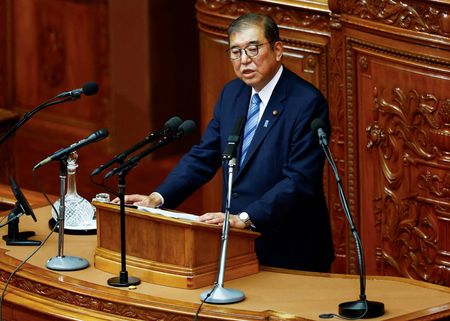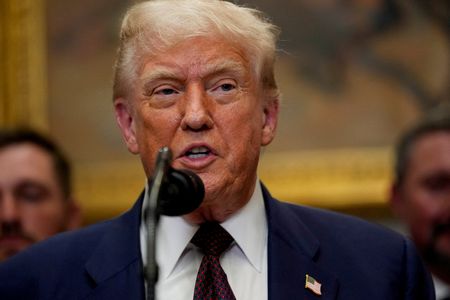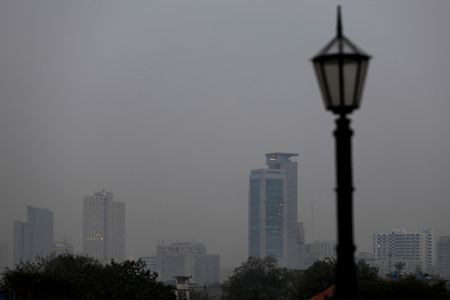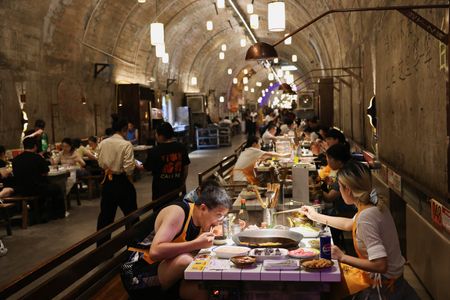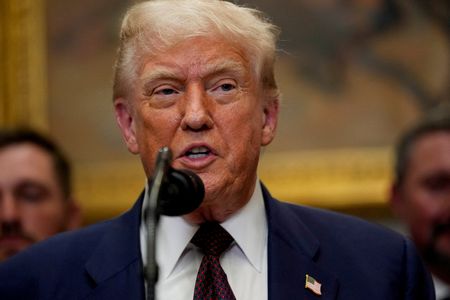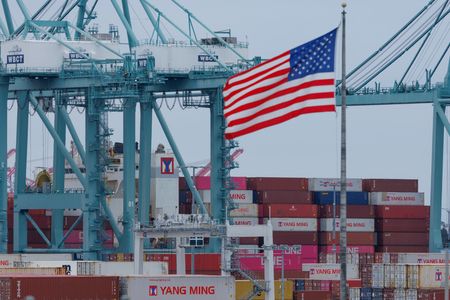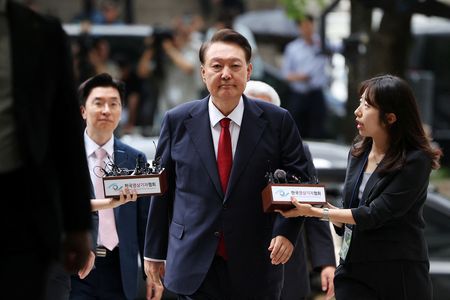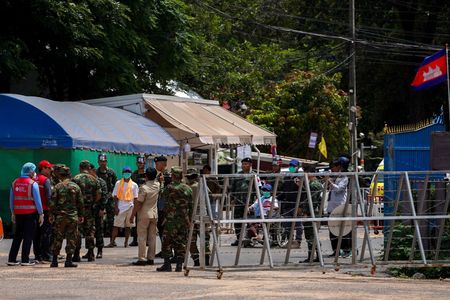By Trevor Hunnicutt, Steve Holland and David Brunnstrom
WASHINGTON (Reuters) – U.S. President Donald Trump said on Friday that Japan’s Prime Minister Shigeru Ishiba will visit him next week at the White House and he looks forward to the conversation.
“They’re coming in to speak to me and I’m looking forward to it,” Trump told reporters in the Oval Office.
The meeting is expected to take place on Friday, Feb. 7. Japan’s Asahi newspaper reported on Thursday that the leaders of the two long-time allies will discuss strengthening economic and security cooperation.
Ishiba, who took office in October, a little over a month before Trump’s reelection, is keen to build a personal relationship early in the U.S. president’s second term and deepen Japan’s key U.S. alliance amid shared concerns about China’s growing power, people familiar with the matter said.
Ishiba plans to highlight how Japanese companies create jobs in the U.S. and increases in Japan’s defense budget, the people said.
Shinzo Abe, a predecessor of Ishiba’s as prime minister who launched significant defense reforms and was assassinated in 2022, enjoyed a strong rapport with Trump during the latter’s first term.
Analysts say Ishiba will want to build on that despite concerns about Trump’s threats of tariffs to correct trade imbalances.
Officials familiar with the matter told Reuters that Japan is considering offering support for a $44 billion gas pipeline in Alaska as it seeks to court Trump and forestall potential trade friction.
Japan has doubts about the viability of the proposed 800-mile pipeline, which Trump has said is key for U.S. prosperity and security, given the overall costs of the gas relative to other sources, but is prepared to offer to explore a deal if asked, the officials said.
Tokyo may include such a commitment among other concessions, such as buying more U.S. gas and increasing defense spending and manufacturing investment in the U.S., to reduce its $56 billion bilateral trade surplus and stave off the threat of tariffs, one of the officials said.
Trump’s defense secretary, Pete Hegseth, spoke by phone with Japanese Defense Minister Gen Nakatani on Thursday, and Japan will have been heartened by the Pentagon hailing the U.S.-Japan alliance “the cornerstone of peace and security in the Indo-Pacific region” in its readout of the call.
“The two officials reiterated the importance of deepening defense cooperation to strengthen deterrence and to advance a shared vision for a free and open Indo-Pacific region,” the Pentagon statement said.
Abe was the first foreign leader to hold a summit with Trump after his 2016 election win, but Ishiba is set to be beaten to that accolade this time by Israeli Prime Minister Benjamin Netanyahu.
Nicholas Szechenyi, head of the Japan program at Washington’s Center for Strategic and International Studies think tank, said Ishiba’s main objective would be to stress that Tokyo will remain a reliable ally to the U.S.
He said the summit would have strategic impact in signaling that alliances will remain a fundamental pillar of U.S. strategy in Asia with U.S.-Japan ties at its core.
“Ishiba’s case is straightforward: Japan is an ally that is stepping up by investing more in its own defense, advancing security cooperation with the U.S., and investing in the U.S. economy,” he said.
Szechenyi said the economic agenda could take center stage.
“A few concrete proposals from Ishiba, maybe on energy imports or new investments in American manufacturing, could help him further Japan’s reputation as an economic partner and set the tone for a productive U.S.-Japan relationship under Trump,” he said.
(Reporting by Trevor Hunnicutt, Steve Holland and David Brunnstrom; Editing by Chris Reese and Deepa Babington)

